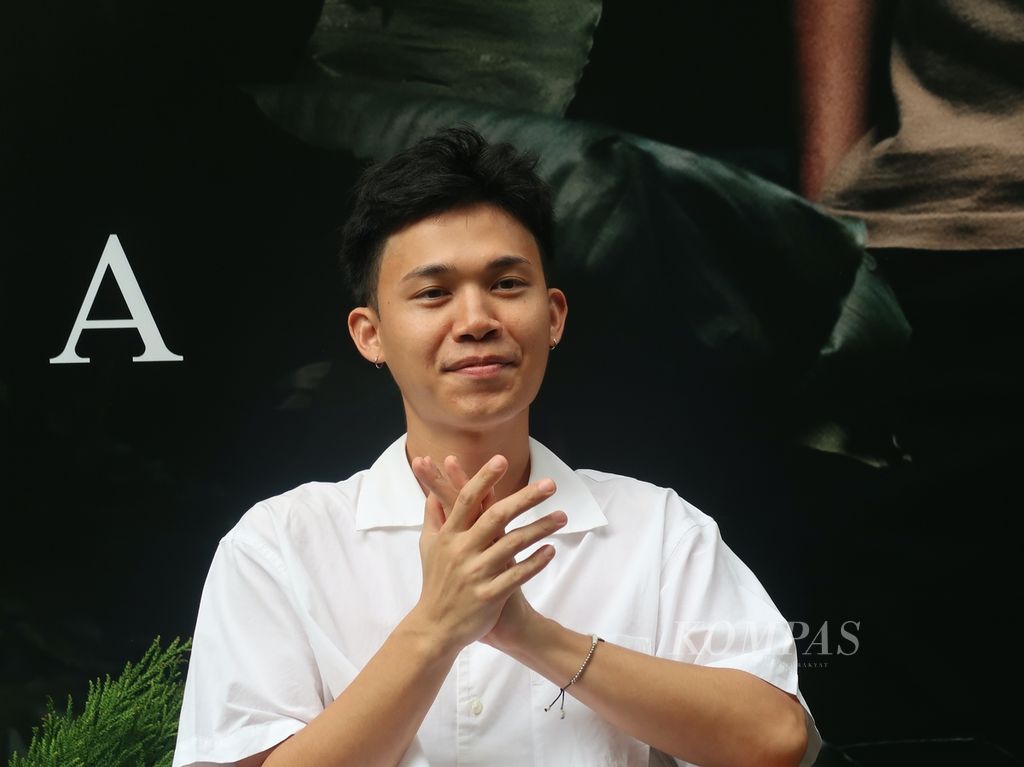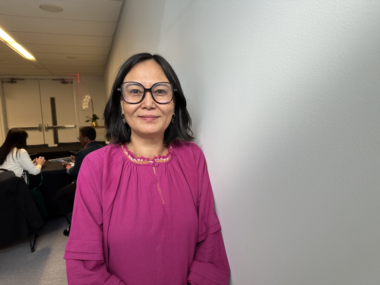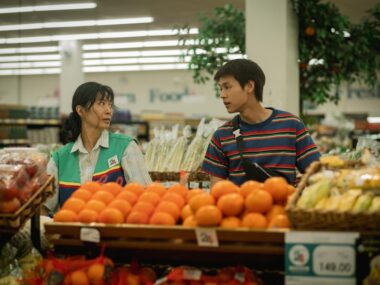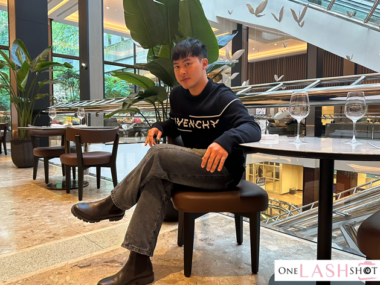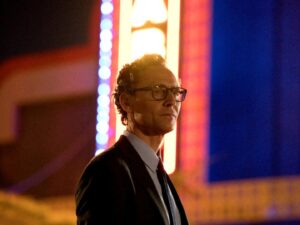Director Pat Boonnitipat began his career as a television director and cinematographer helming an array of popular Thai TV series like Bad Genius, Hormones and Project S before transitioning to film. Following multiple collaborations with the GDH film studio, he was tapped by the producers to create his directorial debut— How To Make Millions Before Grandma Dies.
Co-written by Pat and Thodsapon Thiptinnakorn, it features Thai actors Usha Seamkhum and Putthipong Assaratanakul in their first feature film roles as a grandmother-grandson duo.
In Lahn Mah, M (Putthipong), a university dropout seeking money, offers to care for his dying grandmother (Usha) in order to receive an inheritance.
Breaking box office records worldwide through this emotional story of love, greed and obligation, this movie became the highest-grossing Thai film of 2024. Garnering unprecedented praise for its profound emotional resonance, acting performances, directorship and screenplay, it naturally became the official submission from Thailand for the Oscars 2025.
One Lash Shot had the opportunity to speak with Director Pat Boonnitipat about the behind-the-scenes of How To Make Millions Before Grandma Dies.
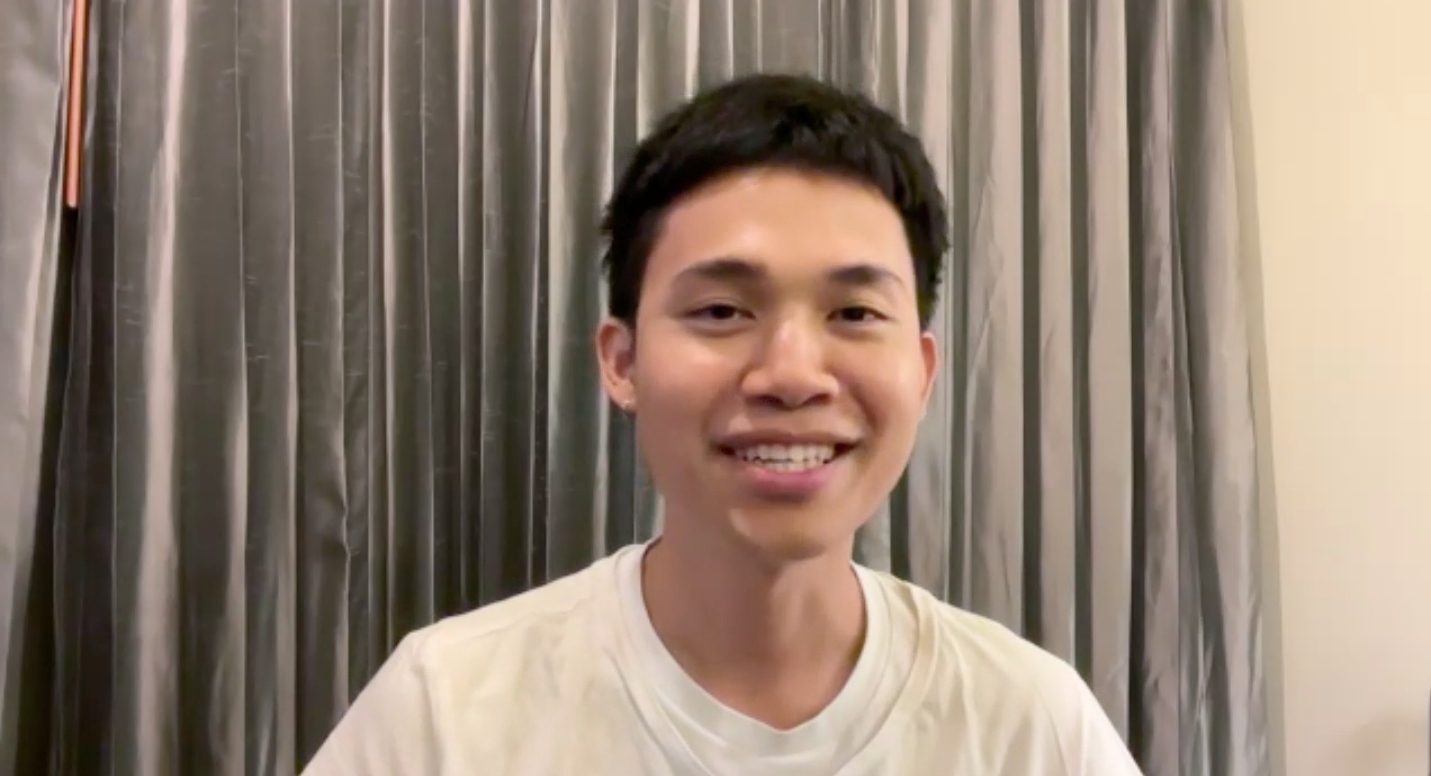
How did you first become interested in movies?
Actually, while I was growing up, I didn’t pay any attention to cinema at all until I was at university when I stumbled across a film festival where they were showing a Japanese female director. It was an art-house film which was quite a rare find back then. So, I went in purely out of curiosity. But it turned out that the film that they were screening was a film by Naomi Kawase called The Mourning Forest. But the subtitle which was supposed to be in English, turned out to be in Spanish! So, I didn’t understand a word. People were leaving the theatre, but I sat there through the entire movie. I cried by the time the movie ended. It was a surprising, new experience for me. Even though I didn’t understand what they were talking about, I found it very beautiful and very moving. That’s when I aimed to make something that could create this kind of feeling.
What made you decide to become the director for your own film project, after several years of working in TV with GDH, for shows like Project S, Bad Genius and Hormones?
Actually, I always wanted to direct a feature film. Watching that movie, changed my life. I’d been studying a lot about films and a lot about so many great directors, so I always wanted to make that kind of film. For example, every time I watched a film by Apichatpong Weerasethakul, I always wanted to make a film right away. So, I always wanted to do that. But making a TV series is kind of like a ticket, if you could direct it well enough, you might get a chance to direct a feature film.
You made the TV adaptation of Bad Genius and now this film for GDH. Why do you think they made the decision for you to make this switch and anchor this debut feature film project?
I heard from Vanridee, the GDH producer, that they actually wanted me to direct a film, but they weren’t sure if I was capable or not. So, they gave me that project, to prove myself and gauge if we could work together.

How To Make Millions Before Grandma Dies was originally the brainchild of screenwriter Thodsapon Thiptinnakorn, who was inspired to write his 10-page synopsis regarding his experience taking care of his sick grandmother. After you signed on to direct and co-write, many revisions were made and it took two years to bring it to life. Why did it take two years to bring it to life and to what extent was it based on his own life?
I think mainly during the earlier part of the writing process, I struggled a lot because I didn’t quite understand how to write for a feature film. I tend to use the method that I used in TV series to write it. And somehow it came it not very charming.
For me, a TV series is mostly about the structure of the story, but a feature film is mostly about the elements or the details that you add to it. It is totally different for me so I had to do a lot of revisions, because of which there were a lot of drafts.
But during the middle period of writing, Thodsaporn and I were able to synchronize much better. And we threw in half of us— half of him and half of me— we threw our life into this movie and mixed it. Mostly the characters from the movie were based on people that I know in my life but many scenes or many situations in the movie were based on his life.
So which characters were based on your life and which situations can you pin-point that were based on Thodsaporn’s?
Ok, almost every character was based on people that I know in my life. Mostly my uncle, my aunt, my mother or my grandmother. The way that they talk. I always like to listen to them and collect their dialogues.
For example, in the ending scene, Thodsaporn actually had a chance to take his grandmother’s body through a truck all the way to her graveyard. So that became the idea of the last scene.
But what was very interesting is that the scene where M finally remembers that his grandmother deposited money for him was actually based on our producer’s life.
GDH Producer Jira’s aunt passed away during our writing process. She left some money for him and when he found out about that, he immediately called us and talked about it and we put it in our script, so it somehow became a mix of our lives.
What served as the foundation for the grandmother Mengju’s character? How did Thodsaporn’s and your lives influence it? Since you stated that the scenes centre on his life but the personalities in yours, who served as the grandmother’s inspiration?
Thodsaporn’s grandmother really sold congee throughout her life. The detailing of how the congee was prepared was totally based on his mother who inherited the congee shop from his grandmother. So, on the days we had to shoot any scene that dealt with the congee shop or how to cook the congee, we would ask Thodsaporn and his mother to be on set and advise us on how to really cook the best congee— in the real way.
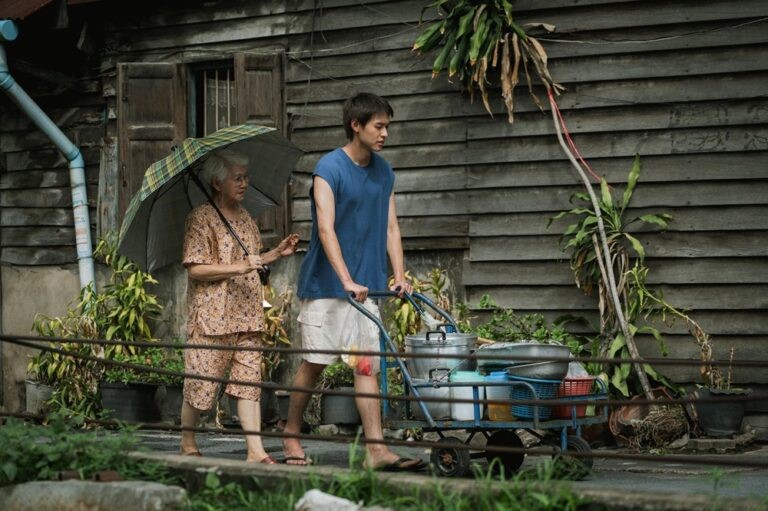
But, the character— that is the way the grandmother talks, the way she makes jokes, the way she doesn’t speak her mind and she never says that she loves anyone. But you could sense her caring through what she does. It’s based on my grandmother.
How did you go about casting the role of M played by Billkin? I heard you disliked Billkin’s initial audition although he was the producers’ first choice- is that true? And then he took acting classes and following the second audition you picked him. What’s the story behind that? Isn’t this the first feature film project for them as well?
Billkin was really good at acting. But in the first casting which I did by myself for both of them, I think he was kind of nervous. He said he hadn’t acted for two years and during that period he had been doing a lot of TV commercials and music videos. He had been doing a lot of stuff because he is also a singer and I think he somehow got very rusty. So, I wasn’t quite sure if he could meet my high expectations considering it was my first feature film.
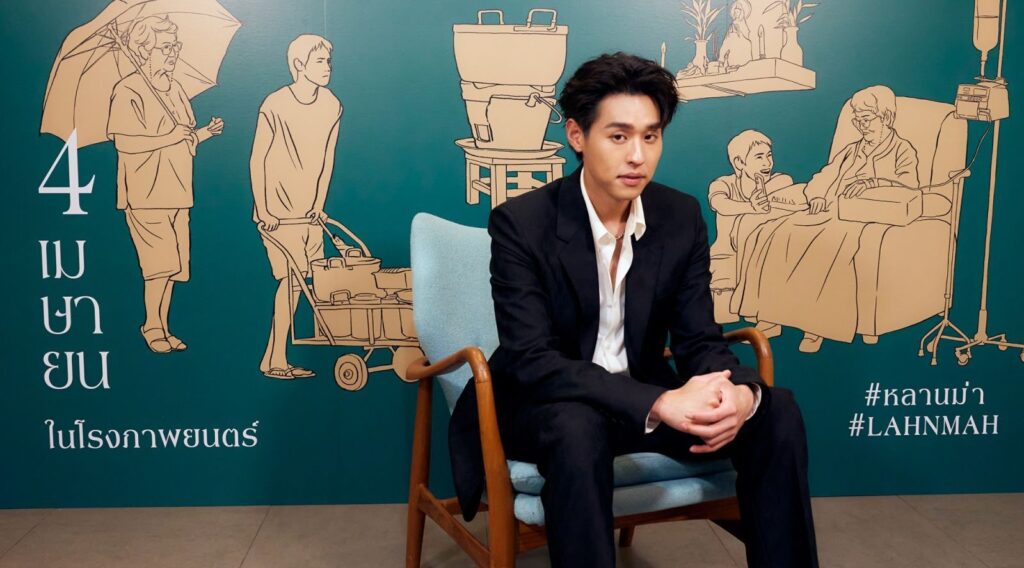
But I could sense his dedication. He was the only guy that I ever worked with that suggested that he would go back and do his homework like taking courses in acting classes. He was determined to come back again and I was really impressed by that. By the time he came back again, he was really charming.
Isn’t this the first feature film for both of them?
Yeah, it was the first feature film project for both of them.
How did you go about casting the role of Mengju played by Ms. Usha? I believe she had only modelled before?
Yeah! It was pure luck. Our casting director did a great job, she said she had cast almost everyone in the industry already who had frequent acting jobs. But Usha, was out of her radar because she never took many acting jobs.
But my assistant director had worked with her in an indie rock band music video. It was so funny because she didn’t do anything except stand there and smoke a cigarette! It was five or six years ago. So, when my assistant director showed me a picture of her, I was like, “Oh, she is very charming!” So, we called her to audition and our casting director cast her as she was really charming,
The film opens with the Qingming Festival. Have you ever participated in it, being of Thai-Chinese origin yourself?
I have done that every year since I was a child. The same goes for Thodsaporn as well. These burial plots were always quite far, so we had to wake up really early and as a kid, we all hated that. We had to wake up like at 4 am and then our parents would put us in the car and we would drive for 2-3 hours and then wake up again at the Qingming. And, it would be really hot!
We had to scatter the flowers, arrange the food, light the incense and there would be someone who would light up the firecrackers. It would be so loud; it would be so hot! And you would not be interested in talking with any uncle of yours. We are too lazy to do that. So that became our memory of going there.
By the time we were doing this script, I hadn’t attended the Qingming for many years. I skipped it. But when we were writing, I tried to attend it again. What I found is that not many people are going there anymore and I would say only twenty percent of the people go there. Apart from that, nobody really goes there anymore. So, it struck me that maybe this is going to disappear someday.
This is specifically a Thai-Chinese tradition that my grandparents made me do.
Does this concept of trying to win a family member’s inheritance shortly before their death occur often in Thailand?
I think people do it without really knowing that they do it.
To be honest, people in my family don’t really take care of the elderly until somebody gets ill or somebody gets sick. For example, my grandfather, I am not that close with my grandfather, so we would contact him only when he is ill or if he needs money. That’s the only thing that keeps us in contact. My grandparents didn’t really have money or any inheritance to begin with, so there was no fight over that whatsoever.
But if I remember correctly, in Thodsaporn’s case, his grandmother had a house and some belongings and by the time she passed away, she only left him a silver belt. Just like in the movie. But Thodsaporn took care of his grandmother very well until her last breath, but she just left him that silver belt.
So, it struck him that despite everything that he did, did she really love him?
So, that became the genesis of the story. So, I think it’s kind of complicated in a way that when you take care of your grandparents, you don’t necessarily get something in return.
Maybe people have different ways of approaching this.
This film portrayed selfishness, greed, illness, spirituality and even an exposure to the online adult industry through Mui’s character. In your opinion, what’s the main theme of the movie. What specifically did you want the audience to understand?
It’s very difficult to put it into words but it consists of so many things. But mainly I think it’s about the interaction of the people that I knew from my life. The interaction between different generations of people who used to live together until one day the belief shifted and they started living separately.
But the dynamic that began due to this multi-generational upbringing to this current single-generational living, has somehow influenced the reaction that we have with each other. Those kinds of reactions somehow leave something in your memories and somehow shape you to become the person that you are.
What would be the movie’s theme, if you had to sum it up in one word?
It’s a menu that my grandmother always liked to cook. In Thai, it’s called ต้มจับฉ่าย
(Jab-chai).
Do you remember the scene where she shaved her head? She was telling M to properly take the soup into the bowl. It’s a vegetable soup that somehow consists of so many leftovers that you got from your fridge. It could be any kind of vegetable or any kind of meat— you would throw it into a pot and you would stir it and it would end up becoming your meal for the whole week!
Somehow that mixture of rotten leftovers or new vegetables freshly picked from the market, when combined into one pot, is very tasty!
I think that somehow represents this movie.
Do you believe grandparents should invest in their grandkid’s future (like the bank deposit started by Mengju for M when he was a kid), implying that the duty towards your kids doesn’t just end when they grow up?
I don’t have any kids right now. But from my grandmother’s perspective and also my mother and father’s view, I think the best investment would be to just let them be.
I mean, my grandmother somehow got married to my grandfather against her will. She moved out of her house. Her family was quite rich, but she had to move into my grandfather’s house which was quite poor. She naturally became disconnected from the house she was raised in. She had to go through so much because my grandfather wasn’t such a good guy. She suffered a lot economically and emotionally.
Despite all the suffering she had been through, I never once encountered a situation where my grandmother tried to put that onto us. She just accepted her life as it was given to her and she didn’t try to force it into her children or grandchildren. And, that’s what I was really thankful about.
She constantly held onto her beliefs, followed her traditions and rituals every day and on occasions like Chinese New Year and stuff, she continued to believe in what she believed. Maybe she couldn’t provide for us too much, but the dynamic that we were just together without forcing each other to do anything— that’s what I see as an investment from her to me.
What’s your opinion on caring for family members except maybe your kids? Do you think it’s possible to care expecting nothing in return?
I still couldn’t do that! (Laughs) I think it’s very difficult. I am not sure if it’s possible.
But maybe at a certain age, I could. But now, I still couldn’t.
What was your favourite scene in the film and why does it hold special meaning to you?
I like many scenes from the movie. But the scene that I really like is the scene when both of them, M and Amah, are walking back from Amah’s brother’s house. They were walking along the railroad track as the sun was setting. They were fighting about the burial plot and M was asking Amah, ” Why would you want the burial plot so badly?” I really like that scene as somehow you can see their relationship.
You can see that they fight, but somehow their fight ends by itself. It doesn’t have to resolve in any way and I really like that.
You broke GDH’s prior worldwide box- office records attained during the Bad Genius run, with this movie. Were there any challenges you faced and how did you overcome it?
I think it’s so difficult to predict box office records. My obstacles were constraints that I set for myself regarding my work. Those constraints revolved mostly around how to communicate with mass audiences without making them feel that now you are making a movie about yourself, not them. It was difficult.
It became a really big constraint for Thodsaporn, me and the rest of the team. We tried so hard to overcome that. Somehow, the audience felt that.
This movie was submitted as the official entry for the Oscars 2025 from Thailand. What do you think is going to happen- do you think you will get nominated and would you win if nominated?
(Laughs) Recently I had a chance to be in LA. The feedback was really nice. The film was very well-received. But honestly, I have no idea. Because, I mean, Hollywood is so ginormous. I couldn’t even imagine how big it is! Even though I met so many kind and friendly people who liked the film, I could never imagine the scale and it’s impossible to predict for me.
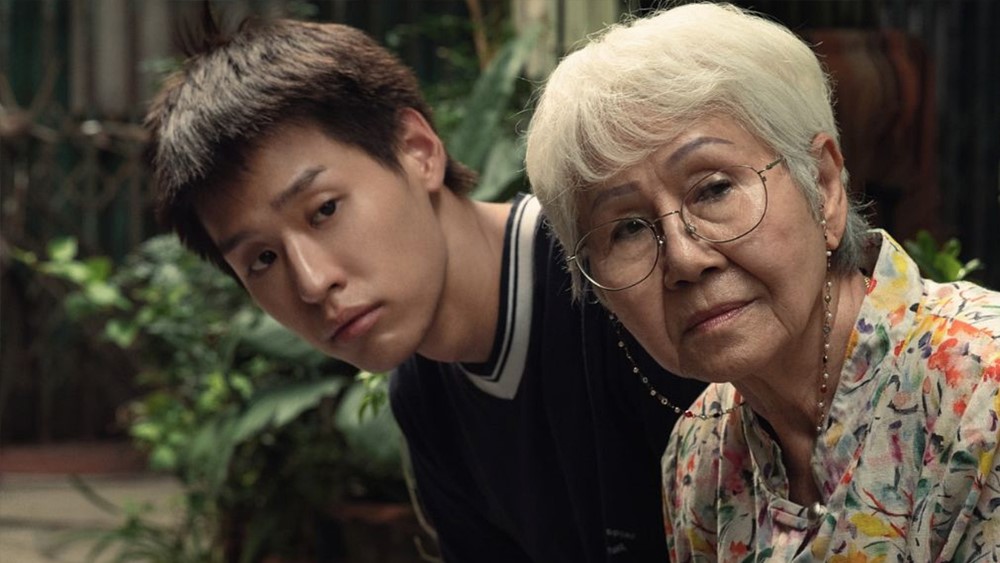
Which movie is your all-time favourite?
I have so many favourite films. But what popped up in my mind now is the film that made me really want to become a director. It is called Tropical Malady by Apichatpong Weerasethakul.
Would you like to share a message with the audience in Thailand or perhaps Indonesia, where it’s done really well?
I mean it’s such a nice, valuable experience to meet so many people when you make a film. And I feel so lucky. My team and I made this movie and somehow the emotion when the audience watched it and connected to it was amazing. Whenever I meet the audience who just watched the movie, if they liked the movie, they were so kind, they were so open. I mean they would be so open about themselves and share so much with us. I never experienced something like this before. I never imagined that it would open up people and that’s so beautiful.
Have you ever been to a movie theatre where you witnessed people crying while they watched the film?
Yeah. Whenever I had a chance, in any country, I would request to be seated with the audience. Because I wanted to experience that.
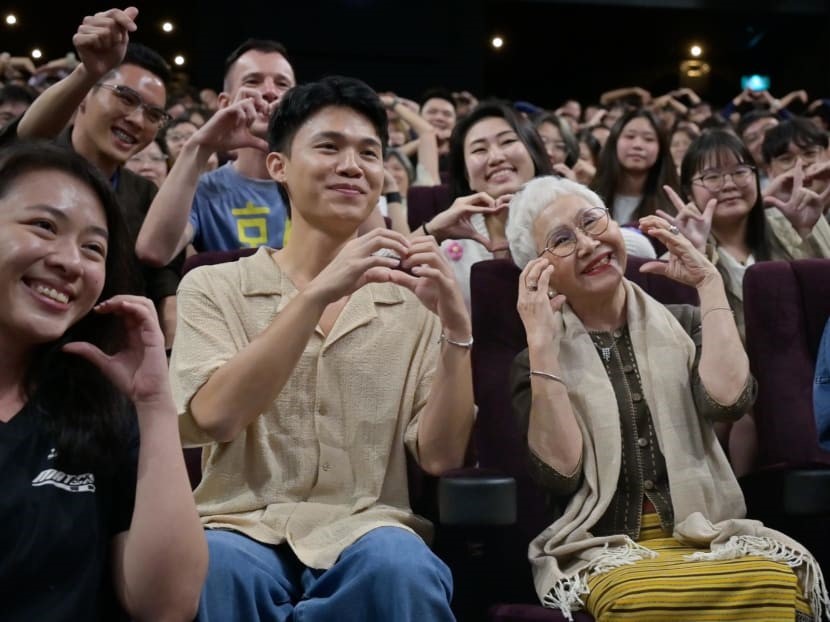
What was your reaction the first time you observed someone crying while viewing the film?
The first time we screened it was during our premiere.
What really surprised me was not only the way that people cried, but also the way that they laughed.
Because I didn’t expect it to be a comedy movie. I mean, I expected it to be lovely, but I didn’t expect that people would like the character that much and that the audience would somehow relate it to their own family.
That’s why they laughed, that’s why they could feel it. And, that kind of laugh is very new to me. It’s not just a laugh. You have the joke aspect of it, but it is also a laugh of connection.
What connection do you see between the film and the Thai-Chinese community in Thailand specifically?
The Thai-Chinese community was channelled from my own experience. Especially the fact that Thai-Chinese families tend to live together in one house. There are so many generations in one house and the house would be so crammed. Normally, you would live in a row house, because you won’t have much money to buy land. It would be very small like four meters wide and it would consist of four floors, but it would contain ten or more people.
So, when you grow up in that kind of upbringing, that kind of upbringing creates a very unique experience. I mean you could know what your uncle was thinking, you could hear what he was doing. You could hear what your grandmother was doing. And your nephew….and everybody has different kinds of beliefs and different kinds of lifestyles.
I think this movie somehow connected to that Thai-Chinese aspect. Additionally, most of them have experienced some of the traditions like the Qingming, shown in the movie.
Does the film depict any customs unique to Thailand?
I think the way that you go to a temple and you write down your wish on the coffin— that’s somehow very Thai. Like when M wrote that he hoped that Amah would win the lottery. It’s called the charity of coffins. You put money for people who are homeless or in case of unclaimed bodies and you buy a coffin for them. That’s what they were doing.
How do you feel about collaborating with Billkin and Usha once more?
I really enjoyed working with them. They were more than I could ask for, whether on-screen or off-screen and we are still close to this day. We would still text each other when we miss them. I would definitely work with them if the project fits.
But I think for Usha— it’s so tiring to work for her. When we were shooting, there was a time limit. During our production, we had to shoot continuously for like four or five days, which was too much for her.
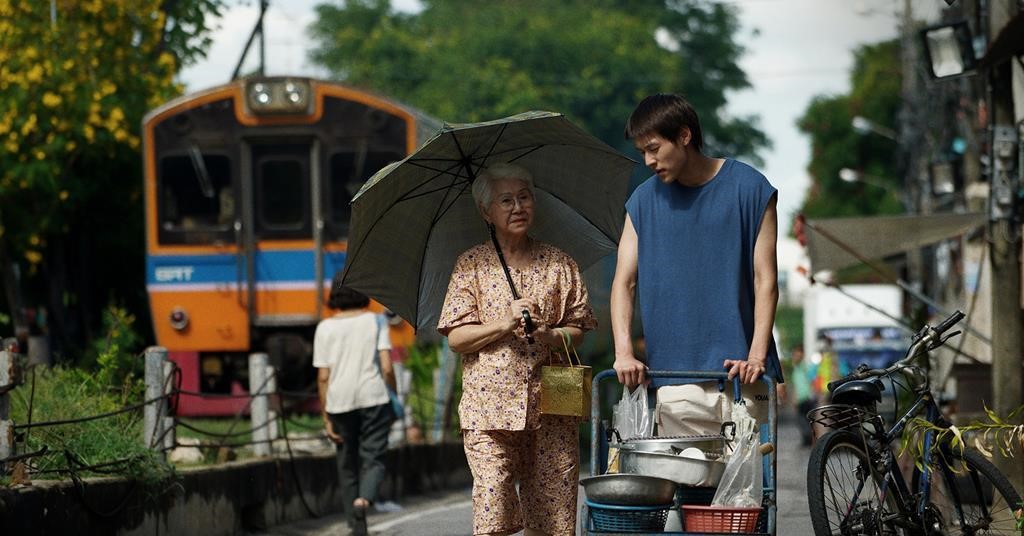
But on the good side, we were shooting the scenes where she got ill while she was really tired. She made it seem so real on-screen because she was genuinely tired. For example, in the scene when she had to walk up the stairs after she got back home; while shooting it, she was so tired as it was the third or fourth day of shooting.
So, what’s next for you?
I have nothing in my mind. Not anything. Because I am right now working for my family business of selling things. I am trying to make it good there and if and when I find any idea, I could switch to directing again. Or if someone could send me the script (laughs)!
[Author’s Note: Thank you to P’Pat and P’Ped for bringing this movie to the world and Billkin and Usha for their amazing portrayal as the grandson-grandmom duo!]

